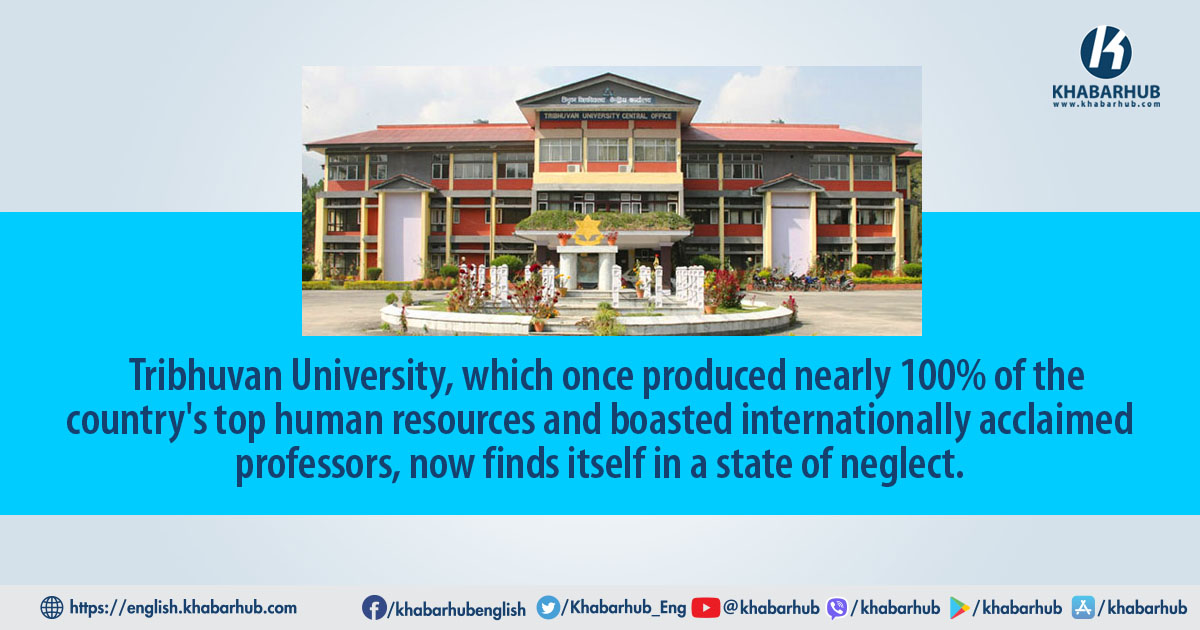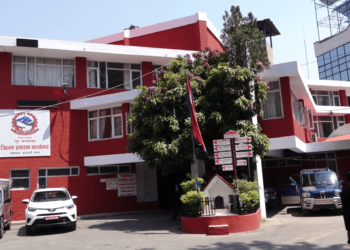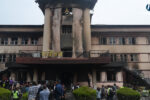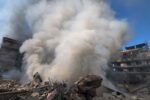It is high time to engage in a critical analysis of the alarming deterioration not only within Tribhuvan University (TU) but also the broader decline evident in the nation itself.
When the entire system is tainted, adopting a one-sided perspective becomes inadequate. We must acknowledge the existing decline rather than attempt to conceal it.
Collectively, we have experienced and acknowledged the stark contrast in the quality of education that Tribhuvan University used to offer in the past. This truth cannot be overlooked.
The root cause of the escalating corruption within the university lies in its politicization.
The absence of a multi-party system in the past, operating under the Panchayat system, kept politics at bay.
However, with the advent of ministers and political parties, the initial distortion began, fostering favoritism based on the political affiliations of individuals working within the university.
The appointments to crucial positions such as Vice-Chancellor, Registrar, and Rectors became influenced by political alliances, leading to a factionalized approach.
Professors, initially opposing the Panchayat system, succumbed to the party’s cultural and systemic influences, perpetuating the divisive trend.
Tribhuvan University, which once produced nearly 100% of the country’s top human resources and boasted internationally acclaimed professors, now finds itself in a state of neglect.
The decision-making process shifted from a focus on excellence and performance to a political one, with the distribution of posts becoming a means of securing positions such as department heads or campus leaders.
Consequently, this practice has spread throughout the country, influencing even Members of Parliament in the pursuit of post distribution.
It is imperative to reflect on the extent to which we have allowed this system to persist.
It is a lamentable reality that Tribhuvan University, once a bastion of quality education, has succumbed to the negative impact of political interventions.
The appointment of individuals with political affiliations has become so pervasive that even the position of vice-chancellor, a role traditionally held by an accomplished academic, is now being occupied by leaders of the country.
The question arises: is there no limit to this erosion of educational values?
The university has fallen under the grip of political influence, with party activities taking precedence over educational pursuits.
The infiltration of political workers into key positions, including those determined by the service commission, has been conducted without regard for qualifications, resulting in a blatant disregard for meritocracy.
This limitation significantly impacts the quality of education, as the absence of laboratories and experimental environments with ample resources diminishes the overall educational experience.
The decline in educational quality is further exacerbated by the insufficient budget allocated by the government for tertiary education.
The lack of infrastructure and funding for on-site practical education leaves students without the necessary hands-on experience.
This dearth of resources is indicative of a systemic failure at the managerial and leadership levels, where political interests often overshadow national priorities.
Tribhuvan University, which once produced nearly 100% of the country’s top human resources and boasted internationally acclaimed professors, now finds itself in a state of neglect.
Despite having alumni who have excelled globally, the university has failed to create a conducive environment for their continued success.
The allocation of positions based on political loyalty rather than meritocracy has led to the exclusion of genuinely capable individuals from key roles.
This situation has fostered a pessimistic atmosphere, discouraging those who aspire to improve Tribhuvan University.
The lack of encouragement for students to pursue practical, hands-on work further hampers their growth.
True reform requires a shift away from political favoritism and a renewed focus on merit-based appointments, fostering an environment that encourages both students and educators to thrive.
Notably, schools like Juddodaya Secondary School and Padmodaya thrive by generating operational environments through rented facilities and compensating teachers with substantial salaries, minimizing reliance on government subsidies.
In the era of the Panchayat system, an innovative one-year program called National Development Support was implemented.
This program required students to embark on journeys to remote villages for practical study, contributing to a comprehensive report that carried a maximum score of 100.
Regrettably, such valuable initiatives are often overlooked and underappreciated.
When transitioning to practical education models, such as the 60/40 or 75/25 ratio, we encounter a disheartening scenario where the practical component is often assigned the same weightage as the theoretical aspect.
Students are compelled to receive grades without engaging in on-site work, an unfortunate outcome of budget constraints preventing fieldwork opportunities.
This limitation significantly impacts the quality of education, as the absence of laboratories and experimental environments with ample resources diminishes the overall educational experience.
The responsibility for these shortcomings lies with the country’s administrators, who must address the consequences of rampant politicization.
The proliferation of universities in the nation, exceeding actual needs, stems from a leadership focus on securing political futures rather than genuinely enhancing and advancing the educational system.
Financial considerations also play a crucial role in the university’s operations. Spanning an expansive 3400 ropani within the Kirtipur compound and operating campuses across Nepal, the university possesses considerable land resources.
The government’s failure to recreate an environment that would encourage them to contribute to their homeland highlights the need for a concerted effort from political parties to prioritize happiness and employment for all citizens.
Notably, schools like Juddodaya Secondary School and Padmodaya thrive by generating operational environments through rented facilities and compensating teachers with substantial salaries, minimizing reliance on government subsidies.
Paradoxically, within the university, properties like the World Trade Center, formerly the VC Office in Tripureshwar, have been commercialized.
However, there is a concerning trend of exploiting state-owned properties without proper accounting or rent collection oversight.
Addressing these financial aspects is critical for ensuring the sustainability and ethical operation of the university.
Even with the commercialization surrounding the Trichandra Campus, the university operating from its own resources may present an illusion of self-sufficiency while maintaining a commitment to quality education and student development.
The Prime Minister’s aspirations for attracting international students to Nepal, articulated in speeches, face the challenge of translating rhetoric into reality.
The acquisition of foreign students necessitates more than words; it requires the establishment of a conducive environment for quality education.
The Prime Minister’s discourse on halting gold smuggling and the Home Minister’s conferring of Bhutanese citizenship to Nepalis instead of employing a CDI-based citizenship approach underscore the ethical challenges in the state’s resource management.
Despite the Prime Minister’s emphasis on bringing back students who studied abroad, particularly in developed countries like America, many have chosen alternative employment opportunities in India.
The government’s failure to recreate an environment that would encourage them to contribute to their homeland highlights the need for a concerted effort from political parties to prioritize happiness and employment for all citizens.
Unfortunately, the current situation has led to a scenario where individuals contemplate migrating between India and China.
The rising number of fatalities in the country, surpassing other nations, demands urgent attention.
The lack of manpower to address such critical issues raises questions about accountability, urging political parties to adopt a more serious approach.
With 10 parties in power and the opposition expressing readiness for a coalition, the National Assembly elections become a focal point.
Unfortunately, issues escalate as mismanagement unfolds, such as leasing university land and neglecting rent payments.
The celebration of festivals using campus premises, instead of fulfilling responsibilities to those appointed, reflects a disconcerting lack of accountability.
Introducing a system that rewards teachers for adapting to this modern approach and providing additional facilities to those who excel will foster a conducive learning environment.
The Prime Minister’s discourse on halting gold smuggling and the Home Minister’s conferring of Bhutanese citizenship to Nepalis instead of employing a CDI-based citizenship approach underscore the ethical challenges in the state’s resource management.
It is imperative that all available resources and assets are utilized ethically to avoid compromising the nation’s integrity.
How to Cleanse the University’s Challenges:
To address the issues plaguing the university, a crucial first step is to cease political appointments.
It is essential to halt the trend of appointing individuals based on political affiliations, as this practice undermines the meritocratic foundation necessary for a thriving academic environment.
Simultaneously, it is imperative to temporarily close fraternal student organizations.
While a union organization for safeguarding the rights and interests of students is essential, the current fraternal organizations, often aligned with political leaders and parties, need a hiatus.
This will pave the way for a more professional and unbiased approach, focusing solely on students’ welfare.
A fundamental shift toward practical education is vital, aligning courses with market demands.
Introducing a system that rewards teachers for adapting to this modern approach and providing additional facilities to those who excel will foster a conducive learning environment.
This approach ensures that education evolves in a contemporary manner, ultimately leading to the production of high-quality manpower within the country.
(Article based on an insightful conversation between Krishna Timalsina and Prof. Dr. Prem Sharma on Radio Candid)









Comment